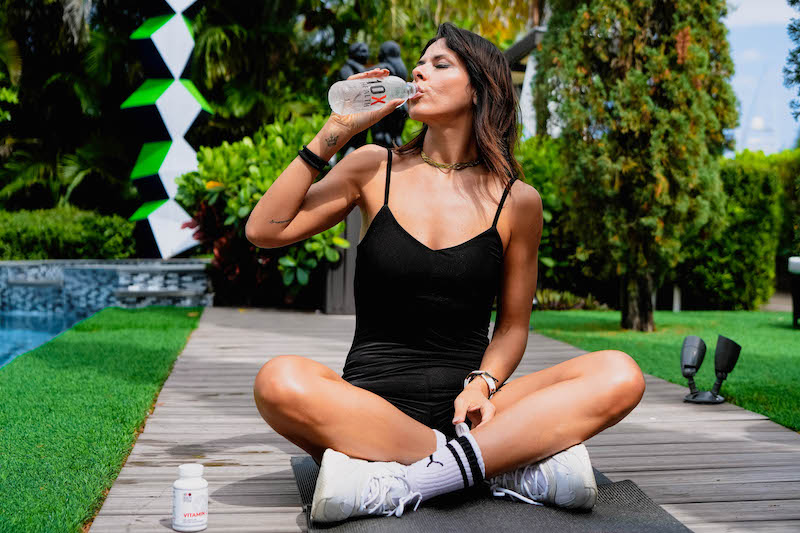Focus on Vitamin D3
Vitamin D3 is a nutrient needed by your body to build and maintain strong bones. It also regulates many other cellular functions in your body. Its anti-inflammatory, antioxidant, and neuroprotective properties support immune health, muscle function, and brain cell activity.
Your body makes vitamin D through the absorption of sunlight, which is why it is often referred to as the “sunshine vitamin.” When sunlight reacts with a chemical in the skin, vitamin D3 (cholecalciferol) is produced, then converted by the liver and kidney into a hormone (calcitriol) that has receptors in nearly all the tissues in your body. The brain has many of these receptors because vitamin D3 is so important to brain health.
The amount of vitamin D3 that your body can produce depends on a number of factors. Where you live, climate, season, and skin pigmentation all contribute to the amount of vitamin D3 that can be produced. If you live in a colder climate that experiences harsh winters, you may go months without producing the necessary amount of vitamin D3 that your body needs.
What Are the Symptoms of a Vitamin D3 Deficiency?
A vitamin D3 deficiency is the most common nutrient deficiency among humans. Not having enough vitamin D3 in your body can cause a number of various issues. Signs and symptoms of not having enough vitamin D3 may include:
- Fatigue
- Bone Pain
- Muscle weakness, muscle pain, or muscle cramps
- Mood changes, like depression
- Hair loss
- Loss of appetite
- Not sleeping well
The most serious complications from a vitamin D3 deficiency include:
- Low blood calcium levels (hypocalcemia)
- Low blood phosphate levels (hypophosphatemia)
- Rickets (softening of bones during childhood)
- Osteomalacia (softening of bones in adults)
Vitamin D3 is an important vitamin your body needs to be healthy. Supplementing vitamin D3 is an easy and constructive way to alleviate a deficiency and get your wellness back on track.
Focus on Vitamin K2
The class of K vitamins include K1 (also called phylloquinone), as well as vitamin K2 (menaquinone). They work differently in your body and come from different food sources. Vitamin K1 comes from plant sources, like leafy greens and blueberries. While vitamin K2 is more common in animal products, fermented foods, and some kinds of cheese.
Vitamin K2 stays in your body longer than vitamin K1 and holds the potential for some serious health benefits. Vitamin K2 aids in blood clotting, helps to build healthy bones, and improves heart health. Some other health benefits of vitamin K2 include:
- Ensuring healthy skin
- Promoting brain function
- Supporting growth and development
- Helping prevent cancer
What Are the Symptoms of a Vitamin K2 Deficiency?
Vitamin K2 deficiencies are more common in newborns than in adults, however, a deficiency can still arise in adults. Symptoms of not having enough vitamin K2 may include easy bruising or difficulty in stopping bleeding after an injury or surgery.
Vitamin D3 + Vitamin K2: The Perfect Combination
Although supplementing vitamins D3 and K2 on their own is beneficial to your wellness, taking them together is a very powerful way to reap even more benefits. Both of these vitamins function more effectively in the presence of the other.
When vitamin D3 is taken in combination with vitamin K2, vitamin D3 can get calcium into your blood easier, and vitamin K2 can tell the calcium to go where it is needed most — your bones. By moving calcium to the bones more quickly, deposits of calcium forming in your arteries and blood vessels are avoided. This process leads to improved cardiovascular health.
The combination of vitamin D3 and K2 is also beneficial to new bone growth. Researchers have found that both vitamins worked together to form new osteoblasts, the cells that secrete osteocalcin, which is a biomarker for new bone growth.
Another benefit of taking vitamin D3 and K2 together is that when combined, they reduce insulin resistance. This could be valuable for people who suffer from diabetes or could potentially reduce the risk of developing diabetes.
—
The favorable combination of vitamins D3 and K2 may provide a pathway to optimal wellness. The various benefits of each vitamin on their own are reason enough to consider supplementing them in your diet, but the partnership that the two vitamins can provide in terms of overall wellness is unique.
Interested in learning more about supplementing vitamins D3 and K2 in your diet? Download our Ultimate Wellness Guide to find out more information about how to reach your optimal well-being, or order your first round of supplements today!
